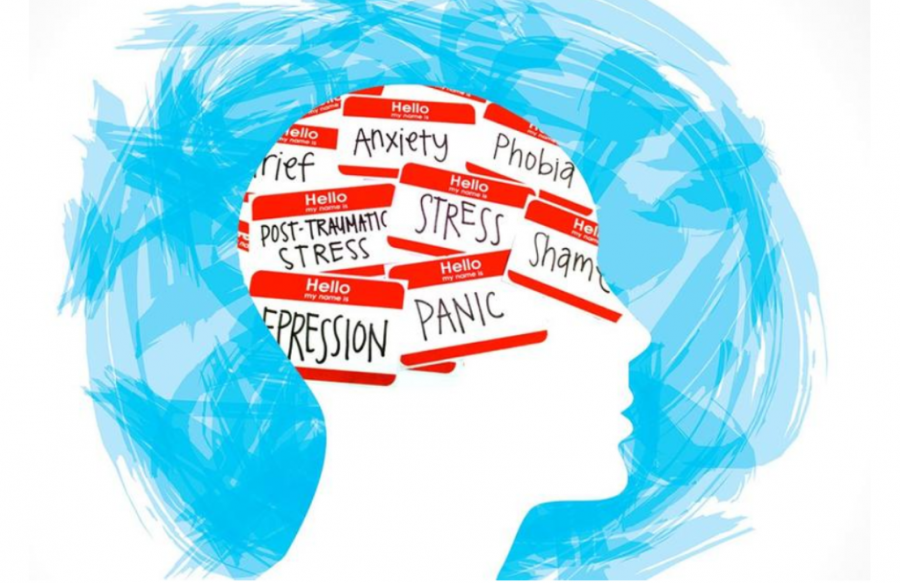What teachers are doing to improve students’ mental health
Photo cred: https://www.tpr.org/post/how-can-we-change-minds-about-mental-health
There’s no doubt that students today are experience higher rates of anxiety and depression. Just in the state of Utah, 33% of kids grades 9-12 have reported symptoms of depression, while 22% have had suicidal thoughts. 14% of kids ages 12-17 have reported having depressive episodes. This begs the question, what about life today is making students more anxious and depressed? What are teachers doing about it? Is there a solution?
Abnormal or impaired brain chemistry, and hormones are the obvious answer, but why are there more “chemical imbalances” found in people today compared to those in the past? Well, low self-esteem, comparison, and peer pressure all add to the mix.
“Students have more access to information that allows them to compare. It’s really hard to compete with somebody’s best Facebook page. As we do that more and more, we fall into this trap, and that is we compare our weaknesses to somebody else’s strengths, and that is an infinite defeat,” Timothy Larsen, English teacher here at Davis High, said.
He continued with, “It’s interesting how corrosive contemporary society can be if you let it in constantly telling you you’re not enough. It’s not only you don’t have enough, but you aren’t enough, and you never will be enough. Those are, if internalized, are destructive messages.”
Heather Bauer, another English teacher here at Davis High, added that there is a lot of pressure from outside influences to fit into a specific mold.
“There’s a lot of pressure to be this, I don’t even know. Nobody really knows what it is but we’re all trying to reach for something that nobody can really define. But we’ll know if you get there,” she commented.
While teachers are not qualified to deal with these sensitive situations, both Larsen and Bauer do think it is everyone’s responsibility to help someone in need.
“I think it’s a human to human obligation. I think it’s a common good thing. I think everyone’s health and happiness is everybody else’s obligation and responsibility. So, as a teacher, if I have some kind of insight as to how to be healthier mentally, how to address anxiety, then if I can share than is a respectful and productive way to students then I want to do that,” Larsen shared.
In his own classroom, he’s connecting the literature he teaches in the classroom to deeper messages about life and happiness. He also tries to work with the students, and their stress levels, when it comes to assigning homework.
Mrs. Bauer takes a similar approach. She also tries to make her class low stress when it comes to homework and grades, and she also likes to send positive and affirming messages to her students.
“That’s always a goal of mine. To create a relationship with the kids, look them in the face, let them know that they’re important, and just ask them about their day. Not just about my class, not just about English, but how are you doing? How are things? I treat them like a human being, not just a student, because you guys are.”
While there is no perfect way to handle this issue, and there may be no perfect solution that completely cures depression or anxiety, but there are ideas that can help make the world a more enjoyable place to be in. As for improving the education system to alleviate anxiety, both Bauer and Larsen would advise the administration and school board listen to the students and their needs to create an environment that students want to be in, as well as place less of an emphasis on grades. As far as the social and emotional aspect of it, Larsen encourages students to be defiant to messages.
While improving students’ mental health may take a huge support system of parents, friends, and others, Larsen, Bauer, and all the teachers here at Davis want you to know they are here for you.
“There are adults in this building that care about these kids so much. So, so much. To be able to create that relationship where a student feels comfortable with me is my goal. That’s why I wanted to be a teacher is because somebody did that for me. Somebody said, ‘You’re safe here, and you’re okay,’” stated Bauer.
Sources:
https://www.mayoclinic.org/diseases-conditions/teen-depression/symptoms-causes/syc-20350985

























